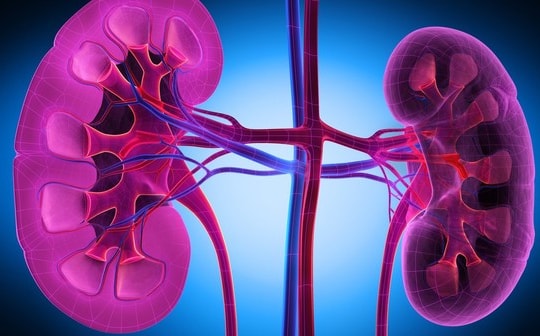Kidney failure due to mistakes when jogging and working out at the gym
Medical experts warn that intense exercise and sports without paying attention to health can lead to serious consequences, including kidney failure.
Nowadays, maintaining health and a beautiful body shape is the goal of many people, exercising becomes an indispensable part of daily life.
However, experts warn that over-exercising can potentially pose many health risks.
Dr. Nguyen Van Tuyen - Head of the Department of Nephrology - Urology, Duc Giang Hospital said that high-intensity training programs put a lot of pressure on the muscles.

Dr. Nguyen Van Tuyen - Head of Department of Nephrology - Urology, Duc Giang Hospital. Photo: Manh Quan
New gym goers, even those in very good physical condition, can be at risk when exercising if the intensity of the activity exceeds the body's tolerance level, causing post-exercise rhabdomyolysis.
In particular, high-intensity exercise can cause rhabdomyolysis, leading to destruction of skeletal muscle tissue and muscle necrosis, which results in the release of toxic components when the muscles are destroyed, which can lead to kidney failure and even death.
"Rhabdomyolysis is defined as the destruction of skeletal muscle cells, thereby releasing into the blood muscle cell components such as: myoglobin, skeletal muscle enzymes, potassium, phosphorus, uric acid, creatine kinase (CK), AST, ALT... causing water-electrolyte disturbances.
This condition leads to hypovolemic shock, blood acidosis, acute kidney failure due to myoglobin blocking the renal tubules, compartment syndrome... These components increasing in the blood will affect the patient's health and even cause death," Dr. Tuyen analyzed.
The Department of Nephrology and Urology, Duc Giang General Hospital once recorded a case of an 18-year-old male with rhabdomyolysis due to excessive physical training.
Previously, this patient had practiced squats up to 200 times. About 3 days after the practice session, the young man had to be hospitalized with severe pain in both thighs, the pain increased when moving, limiting movement, accompanied by red urine and less urine than usual.
After admission, the patient was diagnosed with possible rhabdomyolysis due to excessive exercise.
The patient was quickly ordered to do blood tests to analyze the concentration of CK, AST, ALT enzymes in the serum. The results showed that the CK index of this male patient was more than 158,000 IU/L, AST was 1500 IU/l, ALT was 300 IU/l, 1,000 times higher than the normal human body (CK index in men with normal health is only 38-174 IU/L at 37 degrees Celsius).
To treat this case, Dr. Tuyen said: "We give the patient electrolyte replacement and forced diuresis, acid-base balance, and control fluid intake and output.
Even if the above two methods do not work, we have to use a dialysis machine to filter the patient's blood to remove toxins from the body."
Stop before the red line
Sports enthusiasts such as cyclists or marathon runners are also at risk of rhabdomyolysis, if they do not train properly.
Dr. Tuyen said: "People who practice sports in general or marathon runners in particular must drink enough water during the activity and pay special attention to "listening to their bodies".
Otherwise, overexertion will cause dangerous health problems, especially acute kidney failure, water and electrolyte disorders, acid-base imbalance disorders, which can lead to death."
According to this expert's recommendation, when exercising, you should start at the lightest level, then depending on your physical condition, move on to more intense exercises.
When starting any exercise, especially a new one, take it slow and rest when your body feels overwhelmed. Don't push yourself too hard, stay hydrated and avoid overheating.

When playing sports, you need to listen to your body. Photo: Getty
"Everyone needs to know their own limits and stop exercising when their muscles start to strain too much. Even if you give up early, at least you won't ruin your kidneys or even lose your life if you get sick," Dr. Tuyen emphasized.
According to Dr. Tuyen, acute kidney failure due to rhabdomyolysis can be identified by the following signs: Muscle pain and swelling, reddish-brown urine that then turns dark brown, less urine, possible fever, nausea and vomiting...
"If in case of severe muscle tissue destruction leading to acute kidney failure, the patient will have high blood urea and creatinine levels, which can affect acid-base balance, water and electrolyte disorders, and affect other organs such as the digestive and nervous systems.
At this time, the patient feels nauseous, tired, and even worse, leads to coma and even death. If you know you have overexerted yourself and are experiencing symptoms of rhabdomyolysis, go to the emergency room immediately," Dr. Nguyen Van Tuyen informed./.





